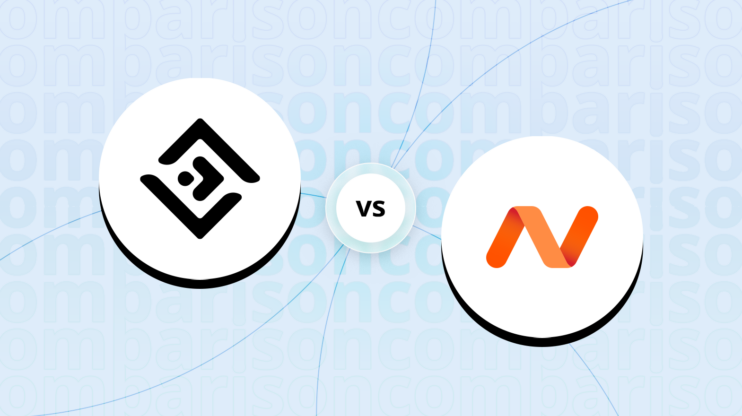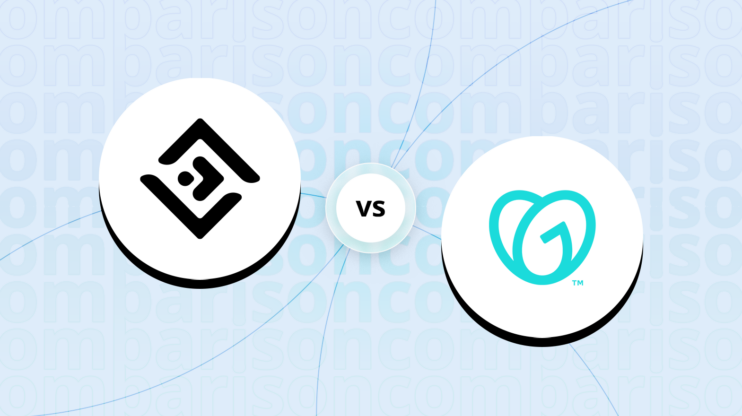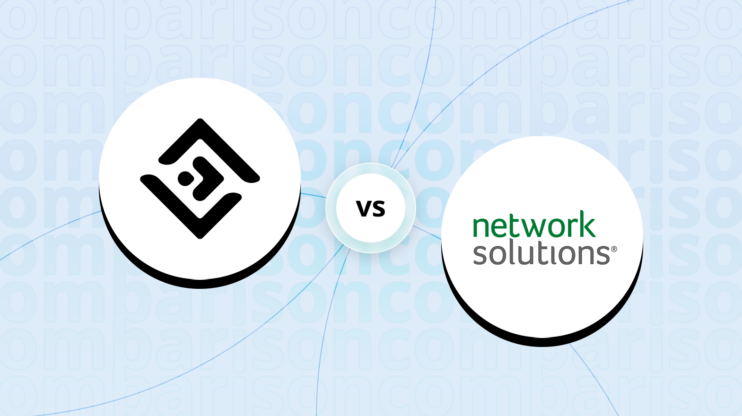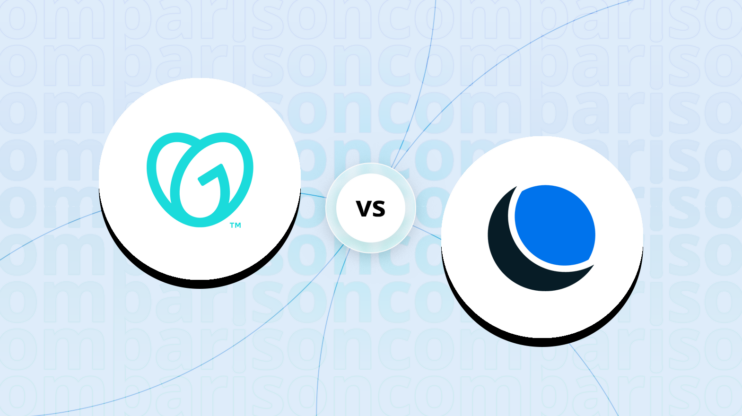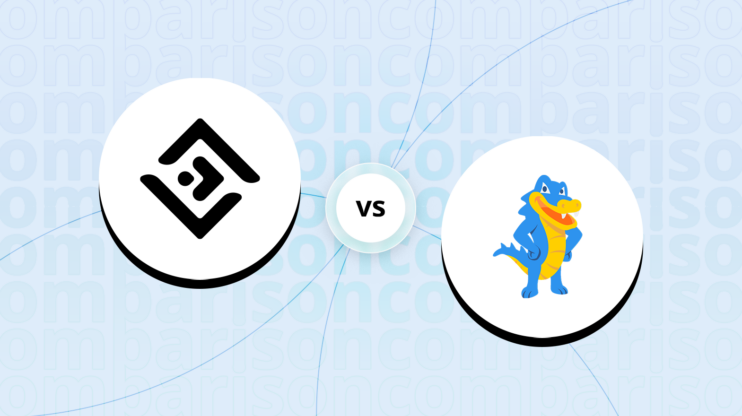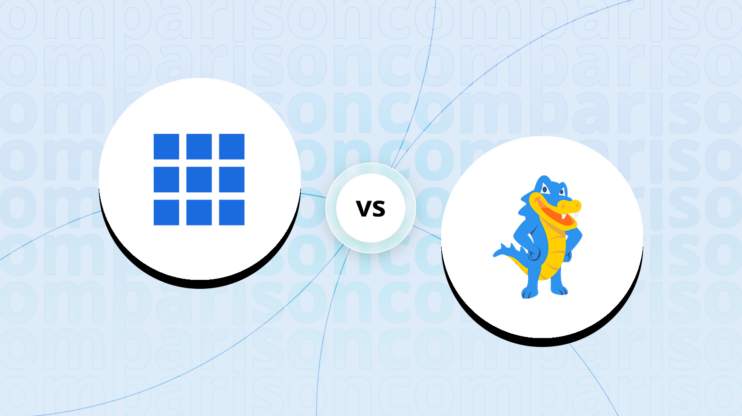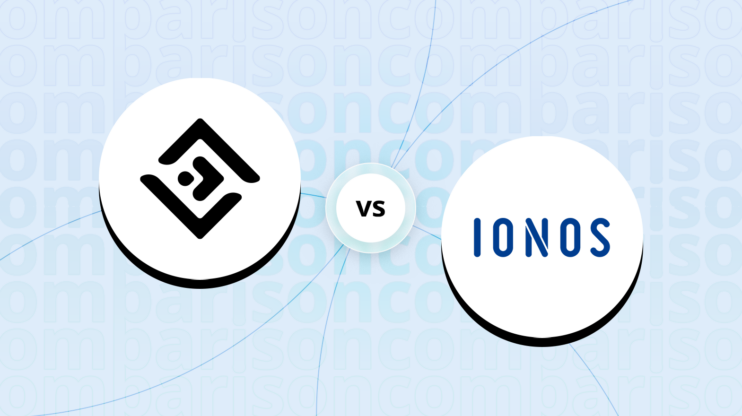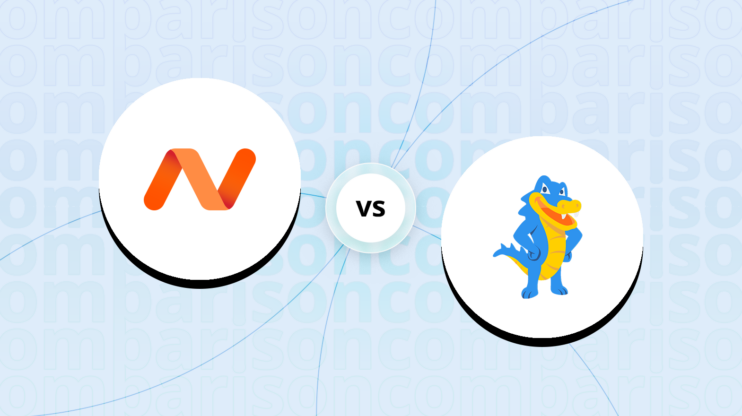Final verdict
Looking over GoDaddy vs. Namecheap, it becomes clear that both providers offer a range of hosting solutions with their own set of strengths and weaknesses.
-
GoDaddy (Overall grade: 7.8)
stands out with a reliable uptime of 99.98% and quick server response times averaging 341ms. It’s particularly beneficial for ecommerce sites and high-traffic websites due to its superior support, global data centers, and a wide variety of performance tiers. GoDaddy provides robust security features like AutoSSL, CloudLinux, and CageFS, and excels in user management with a flexible system for defining and assigning custom roles. However, it falls short in pricing as its plans are generally more expensive in the long term, and the customer support can be inconsistent.
Namecheap (Overall grade: 7.2)
shines with its affordability and better performance in certain critical areas such as SSD storage and quick load times for WordPress hosting. It is an excellent choice for multimedia websites due to its RAID 10 protection and audio/video streaming capabilities. Namecheap’s technical security includes Free SSL, PremiumDNS, and FastVPN, making it a secure choice for users. While its customer service is generally praised, the absence of phone support is a notable drawback. Namecheap’s structured, user-friendly EasyWP dashboard and comprehensive introductory pricing make it a good fit for beginners and budget-conscious users, although it may lack in scalability and advanced feature sets compared to GoDaddy.
 Overall grade:7.8 |
 Overall grade:7.2 |
|
|---|---|---|
| Uptime and Availability | 8.6 | 8.0 |
| Hosting Performance | 8.1 | 8.2 |
| Hosting Security | 8.6 | 8.5 |
| Price | 7.7 | 8.7 |
| Hosting Features | 7.1 | 7.5 |
| Ease Of Setup | 8.7 | 8.8 |
| User Management | 5.0 | 0.0 |
| Customer Support | 8.2 | 8.0 |
| User feedback | 3.9/5 | 4.3/5 |
Hosting types offered
Both platforms provide a variety of hosting types, each designed to meet the different needs of users.
 |
 |
|
|---|---|---|
| Shared hosting | ||
| Cloud hosting | ||
| WordPress hosting | ||
| Ecommerce hosting | ||
| VPS hosting | ||
| Dedicated hosting |
Although both offer a variety of hosting plans tailored to different needs, in
certain cases, one platform may prove to be more suitable.
Detailed comparison
Uptime and availability
Evaluates the average uptime statistics, uptime guarantee and overall availability of the hosting
provider
Score Components:
- Uptime percentage (30%): evaluates the uptime statistics in given period of time
- Uptime guarantee (20%): Assesses if the platform offers an uptime guarantee and
whether the actual uptime matches the promised guarantee. - General performance (25%): Evaluates how fast is the average response time and overall
it’s stability. - Responsiveness (10%): Adaptability to different devices and screen sizes.
- Availability (25%): Reflects the total downtime and number of outages.
 8.6
8.6
 8.0
8.0
Winner GoDaddy: Reliable uptime and fast response times.
🏆 Winner
GoDaddy: It’s superior uptime and significantly faster response times make GoDaddy a better choice for users who require high performance and stability from their hosting provider.

GoDaddy’s hosting performance excels with a 99.98% uptime during testing, surpassing its advertised 99.9% guarantee. Its server response time averages at 341ms, significantly faster than the industry average. For those targeting a global audience, GoDaddy’s load times are exemplary, particularly in the US where the LCP is a notable 481ms.

Namecheap presents a mixed bag with a range of uptime guarantees across its services, from 99.9% to 100%. Actual performance data shows some variability, achieving an average uptime of 99.96%. Response times for Namecheap, especially outside the US, tend to be slower, with LCP metrics of 912ms in the US, 1.4s in the UK, and 2.1s in India.
In terms of compensation for downtime, GoDaddy offers a 5% credit of the monthly fee, while Namecheap extends up to one month of free hosting if downtime is confirmed. GoDaddy’s superior uptime and quicker response times make it the more reliable choice for hosting needs.
Hosting performance
Score Components:
- Hosting speed (30%): This includes SSD quality, Load times, PageSpeed score ranges,
additional information on website speed, built-in plugins for performance enhancement, available caching
methods, and CPU/RAM options - CDN (20%): Considers whether CDN is available or not, whether it’s free or paid, and
the quality of the CDN service - Available data centers (30%): Evaluates the number of data centers and their locations
globally. - Scalibility (20%): Looks at whether elastic scaling is available, the process required
to scale (manual upgrade vs. automatic scaling), the presence of dedicated servers, and the costs
associated with scaling.
 8.1
8.1
 8.2
8.2
🏆 Winner Namecheap: Slightly better overall performance and value
Comparing the general performance of GoDaddy and Namecheap reveals that both hosts provide strong services, but Namecheap edges out in a few critical areas. GoDaddy boasts optimized servers with up to 40% faster response times, while Namecheap offers high-speed SSD storage and better load times with its WordPress hosting, clocking in a fully loaded time of 0.7 seconds. GoDaddy has global data centers across North America, Europe, and Asia-Pacific, ensuring broad coverage. Namecheap’s data centers are primarily in the US, UK, and EU. Both hosts offer free CDN with their plans, yet Namecheap includes it across all of its EasyWP offerings without additional costs.
Website Speed
Website speed is crucial, and both GoDaddy and Namecheap perform admirably. GoDaddy’s optimized servers and NVMe storage offer fast load times and robust performance across their various hosting plans. Namecheap shines with its EasyWP plans, providing faster performance with a fully loaded time of 0.7 seconds and a Time to First Byte of 192 milliseconds. Both providers guarantee a 99.9% uptime, ensuring minimal downtime for users.
Scalability
Scalability is essential for growing websites. GoDaddy offers dedicated resources and various Web Hosting Plus plans, which cater to standard and complex websites by upgrading resources like RAM and CPU manually. It also has a managed WooCommerce option for online stores. Namecheap does not specify elastic scaling but offers upgrade options across its shared, WordPress, reseller, and VPS hosting plans. Namecheap’s VPS plans range from 2 core CPUs and 2048 MB RAM to 8 core CPUs and 12288 MB RAM, making scaling straightforward if demands increase. Pricing for upgrades isn’t specified, so direct inquiries might be necessary for detailed scaling costs.
Hosting security
and regulatory requirements
Score Components:
- Technical security measures (40%): This includes encryption, firewalls, DDoS
protection, secure configurations, server monitoring, access control and availability of security addons
(e.g Sitelock security). - Operational security measures (30%): Encompasses data privacy, backups and data
redundancy. - Compliance and certifications (20%): Adherence to legal and regulatory requirements
(e.g., GDPR, HIPAA) and possession of certifications (e.g., ISO 27001, SOC 2). - Business and reliability (10%): Factors in the provider’s reputation, uptime
guarantees, and customer support.
 8.6
8.6
 8.5
8.5
🏆 Winner GoDaddy: Provides a comprehensive suite of security measures for a secure hosting environment.
Both GoDaddy and Namecheap, have notable differences in their approaches to technical and operational
security, as well as in their compliance with regulations.
Technical security measures:
GoDaddy offers robust features like AutoSSL, Managed SSL, and self-managed SSL certificates. Its hosting plans include PHP 7.4 and 8.0 versions with Zend support. Namecheap provides various SSL types, from DV to EV, and supports PHP 5.X to PHP 8.X. Both offer DDoS protection and malware scanning, but GoDaddy includes features like CloudLinux and Cage FS for balanced resource distribution and enhanced file security respectively. Namecheap offers unique designs such as FastVPN and PremiumDNS to strengthen technical security.
Operational security measures:
Operational security in GoDaddy is reinforced with 24/7 customer support via phone and chat, automated updates, daily site backups, and a global network of data centers. Namecheap also offers 24/7 live support and employs two-factor authentication, SSH access, and virus scanning. Both providers enable automated backups and email protection though GoDaddy’s use of DDoS protection and global data centers ensures broader reach and stability.
Compliance and certifications:
GoDaddy complies with GDPR and PCI, making it suitable for businesses processing sensitive data. It provides tools to manage marketing emails and trains its employees on data protection. Namecheap allows users to exert their rights under GDPR but does not explicitly mention PCI compliance. Both prioritize data privacy and protection, ensuring users can manage their personal data efficiently.
 |
 |
|
|---|---|---|
SSL certificate |
AutoSSL, Managed, Self-Managed |
DV, OV, EV |
Additional security features |
CloudLinux, Cage FS, DDoS protection |
PremiumDNS, FastVPN, 2FA |
PHP versions |
7.4, 8.0 |
5.X to 8.X |
GDPR compliance |
Yes |
Yes |
HIPAA compliance |
Not specified |
Not specified |
PCI compliance |
Yes |
Not specified |
Hosting features
Score Components:
- Domains (20%): Assesses the availability of a free domain, domain purchase options, and
pricing - Email (15%): Considers if the provider offers full email hosting, or is reselling
third-party service, and if the email is only transactional or not - Website builder (15%): Checks if website builder is available, and it’s user
friendliness and overall the level of customization allowed. - Staging environment (20%): Determines if a staging environment is available, allowing
for testing changes before going live. - FTP & SFTP accounts (10%): Evaluates if and how easily users can access FTP and
SFTP accounts - Git and SSH access (20%): Assess whether Git is integrated into the hosting service and
if SSH access is provided
 7.1
7.1
 7.5
7.5
🏆 Winner
Namecheap: A versatile hosting provider with user-friendly options and affordable pricing.
Both GoDaddy and Namecheap offer a range of hosting solutions that cater to diverse needs. GoDaddy stands out with its free 24/7 support, free domain, and email services included in all its plans. It also provides a comprehensive WordPress migration tool and data centers located across North America, Europe, and Asia-Pacific for faster load times. Namecheap, on the other hand, provides free website builders for its shared hosting plans, making it more appealing for those needing straightforward web creation capabilities. Namecheap’s auto backups and cloud storage are unique selling points that can attract users focused on security and data integrity.
When it comes to user-friendliness and customization, Namecheap’s Website Builder might sway users favoring ease of use and immediate setup. GoDaddy’s plans allow for extensive customization and include a variety of performance tiers, which can appeal to those requiring more robust and scalable solutions. GoDaddy’s additional features, like KVM virtualization, add to its appeal for technically adept users. Both providers offer free SSL certificates and a 30-day money-back guarantee, but Namecheap’s more attractive introductory pricing might be a deciding factor for those on a tight budget.
 |
 |
|
|---|---|---|
Free domain |
Yes, for the first year |
Yes, for the first year |
Free SSL |
Yes, for the first year |
Yes |
Email hosting |
Yes |
Yes |
Website builder |
No |
Yes |
Staging environment |
Yes (In Managed WordPress plans) |
Yes (With Stellar Business Plan) |
FTP & SFTP accounts |
Yes |
Yes |
Git and SSH access |
Yes |
Yes |
Free backup |
Yes |
Yes |
Money back guarantee |
Yes |
Yes |
a location.
As a result in rare cases the features mentioned here can differ from the ones you see on their websites.
Both providers support a range of users from beginners to experts with user-friendly website builders and WordPress staging areas. However, in terms of developer tools, both GoDaddy and Namecheap offer robust options including SSH access, support for multiple programming languages, and Git for version control, thus appealing to developers looking for advanced capabilities.
Email services:
GoDaddy and Namecheap both offer robust email hosting services. GoDaddy includes a free domain-based email with all its hosting plans, enhancing its appeal to business users. Namecheap supports email campaigns with unlimited mailboxes in its Stellar Plus and Stellar Business plans, adding flexibility for growing businesses. Both providers offer spam protection tools, but Namecheap’s Jellyfish Spam Protection and additional features like BoxTrapper offer a more comprehensive email filtering experience. Both do not resell third-party services but provide adequate in-house solutions for most small to medium businesses.
Price
Score Components:
- Plan value (40%): What each pricing tier offers.
- Transparency and clarity (30%): Clearness of pricing structures.
- Flexibility of plans (20%): Range of options to suit different budgets.
- Hidden costs (10%): Additional expenses not included in the plan.
 7.7
7.7
 8.7
8.7
🏆 Winner – Namecheap: Cost-effective plans with noteworthy features and competitive pricing.
Evaluating the pricing of plans among various hosting providers can be complex due to their differing pricing and renewal strategies. Additionally, certain plans require annual commitments, which adds to the difficulty of making comparisons. The prices listed are based on monthly commitments; plans requiring annual commitments are indicated. Additionally, although some providers offer identical plans for WordPress and shared hosting, we have created separate tables for each to enhance clarity.
GoDaddy and Namecheap offer various web hosting plans designed to cater to different user needs. GoDaddy’s plans range from general web hosting to managed WordPress and VPS options, with a mix of features like free SSL, a free domain, and a 30-day money-back guarantee. Namecheap, while offering more budget-friendly options, includes features such as automatic SSL installation, free website migration, and free Supersonic CDN. The plans also differ in terms of renewal pricing, with Namecheap generally offering more cost-effective long-term pricing.
 |
 |
|---|---|
|
Managed WordPress Basic $12.99
1 Website, 10 GB NVMe storage, Free Domain, Free SSL, WordPress pre-installed, AI creation tool, Weekly backups, Web Application Firewall, Automated malware scans & removal Value for price:6.5
|
EasyWP Starter $6.88
1 Website, 10 GB SSD storage, 50k visitors/month, Free CDN, Free SSL, Installed in under 90 seconds, 99.9% uptime, Easy backups and restores Value for price:7.8
|
|
Managed WordPress Deluxe $13.99
1 Website, 20 GB NVMe storage, Free Domain, Free SSL, WordPress pre-installed, AI creation tool, Daily backups, Web Application Firewall, Automated malware scans & removal, Up to 2x faster performance with CDN, Enhanced security with DDoS protection, Staging site Value for price:7.0
|
EasyWP Turbo $12.88
1 Website, 50 GB SSD storage, 200k visitors/month, 1.5x more CPU, 1.5x more RAM, Free CDN, Free SSL, Installed in under 90 seconds, 99.9% uptime, Easy backups and restores Value for price:8.3
|
|
Managed WordPress Ultimate $15.99
1 Website, 30 GB NVMe storage, Free Domain, Free SSL, WordPress pre-installed, AI creation tool, Daily + on-demand backups, Web Application Firewall, Automated malware scans & removal, Up to 2x faster performance with CDN, Enhanced security with DDoS protection, Staging site, SEO Optimizer, WordPress code optimizer, Smart WordPress plugin manager, Sell online with WooCommerce, Priority Support Value for price:7.5
|
EasyWP Supersonic $19.88
1 Website, 100 GB SSD storage, 500k visitors/month, 2x more CPU, 2x more RAM, Free CDN, Free SSL, Installed in under 90 seconds, 99.9% uptime, Easy backups and restores Value for price:8.7
|
 |
 |
|---|---|
|
Web Hosting Economy $5.99
1 Website, 25 GB NVMe storage, Shared resources, Free domain, Free email, Free SSL (1 year), 30-day money-back guarantee Value for price:6.8
|
Stellar $4.48
3 Websites, 20 GB SSD, 30 Mailboxes, Website Builder, Free domain name (1 year), Free automatic SSL installation, Free Supersonic CDN, 30-day money-back guarantee Value for price:7.2
|
|
Web Hosting Deluxe $7.99
10 Websites, 50 GB NVMe storage, Shared resources, Free domain, Free email, Free unlimited SSL, 30-day money-back guarantee Value for price:7.0
|
Stellar Plus $6.48
Unlimited Websites, Unmetered SSD, Unlimited Mailboxes, AutoBackup, Website Builder, Free domain name (1 year), Free automatic SSL installation, Free Supersonic CDN, 30-day money-back guarantee Value for price:8.1
|
|
Web Hosting Ultimate $12.99
25 Websites, 75 GB NVMe storage, Shared resources, Free domain, Free email, Free unlimited SSL, 30-day money-back guarantee Value for price:7.5
|
Stellar Business $9.48
Unlimited Websites, 50 GB SSD, Unlimited Mailboxes, AutoBackup & Cloud Storage, Website Builder, Free domain name (1 year), Free automatic SSL installation, Free Supersonic CDN, 30-day money-back guarantee Value for price:8.3
|
 |
 |
|---|---|
|
VPS Hosting Basic $8.99
1 vCPU core, 2 GB RAM, 40 GB NVMe SSD Storage, Snapshot backups, Linux only, cPanel or Plesk available, 1 additional IP available upon request, Global data centers, 30-day money-back guarantee Value for price:7.0
|
EasyWP Starter $6.88
1 Website, 10 GB SSD storage, 50k visitors/month, Free CDN, Free SSL, Installed in under 90 seconds, 99.9% uptime, Easy backups and restores Value for price:8.0
|
Enterprise plans
GoDaddy’s VPS and WooCommerce hosting plans cater to businesses with more extensive needs, offering features like multiple IP addresses and high storage options through AWS hosting. Namecheap’s dedicated server hosting provides full root access and customizable configurations, suitable for high-traffic websites and specialized functions like game servers and content streaming. Namecheap’s plans generally provide greater value at competitive prices.
Ease of setup
platform.
Score Components:
- Site migration (25%): Assesses whether the provider offers tools for site migration,
either automated or manual, and whether these services are free or require a fee. - Admin panel usability (35%): Evaluates the type of admin panel provided, such as the
standard cPanel or a custom solution, focusing on its accessibility and user-friendliness for both
technical and non-technical users. - Setup features (20%): Examines the availability and ease of use of various setup
features, including FTP accounts, file managers, email account setup, PHPMyAdmin, and easy CDN
configuration. - Help center quality (20%): Measures the quality and accessibility of the provider’s
help center resources, including articles and tutorials.
 8.7
8.7
 8.8
8.8
🏆 Winner
Namecheap: User-friendly setup with comprehensive tools and a customized dashboard for easy website management.
Namecheap employs a customized EasyWP dashboard rather than the standard cPanel for managing websites. This dashboard offers a more streamlined and integrated experience, placing all essential tools within easy reach. Users can manage backups, connect domain names, and handle all site-related tasks through this single interface. The absence of cPanel may initially be challenging for those used to it, but the EasyWP dashboard’s user-centric design makes it accessible even for beginners.
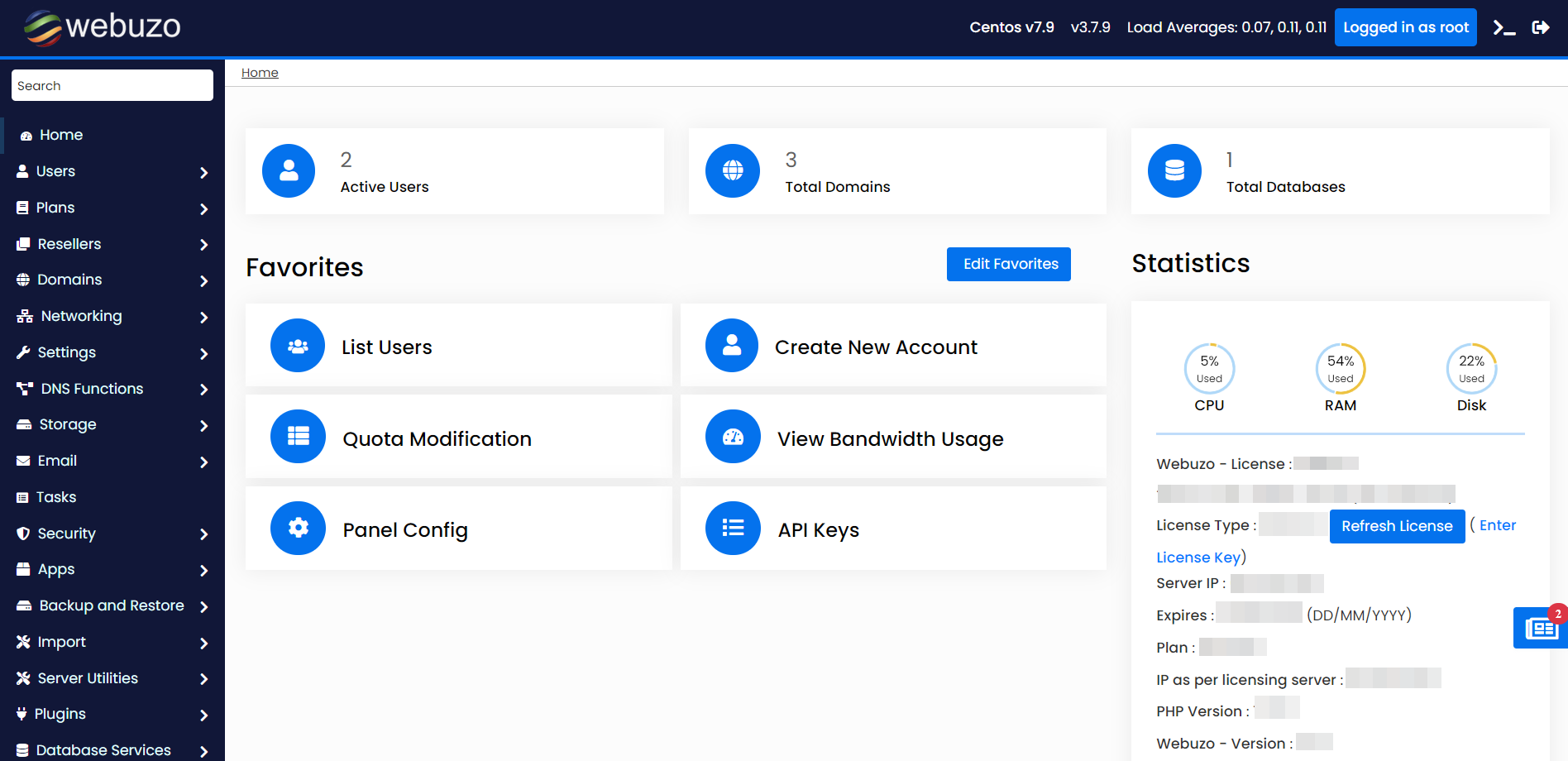
GoDaddy provides an easy-to-use cPanel, an industry-standard control panel familiar to many users. This makes it accessible for both technical and non-technical users. The control panel allows users to install apps, manage backups, and security with ease. GoDaddy’s interface is straightforward, making navigation simple, especially for those who are already accustomed to cPanel’s layout. Additionally, the availability of automatic daily backups adds a layer of convenience for ongoing maintenance.
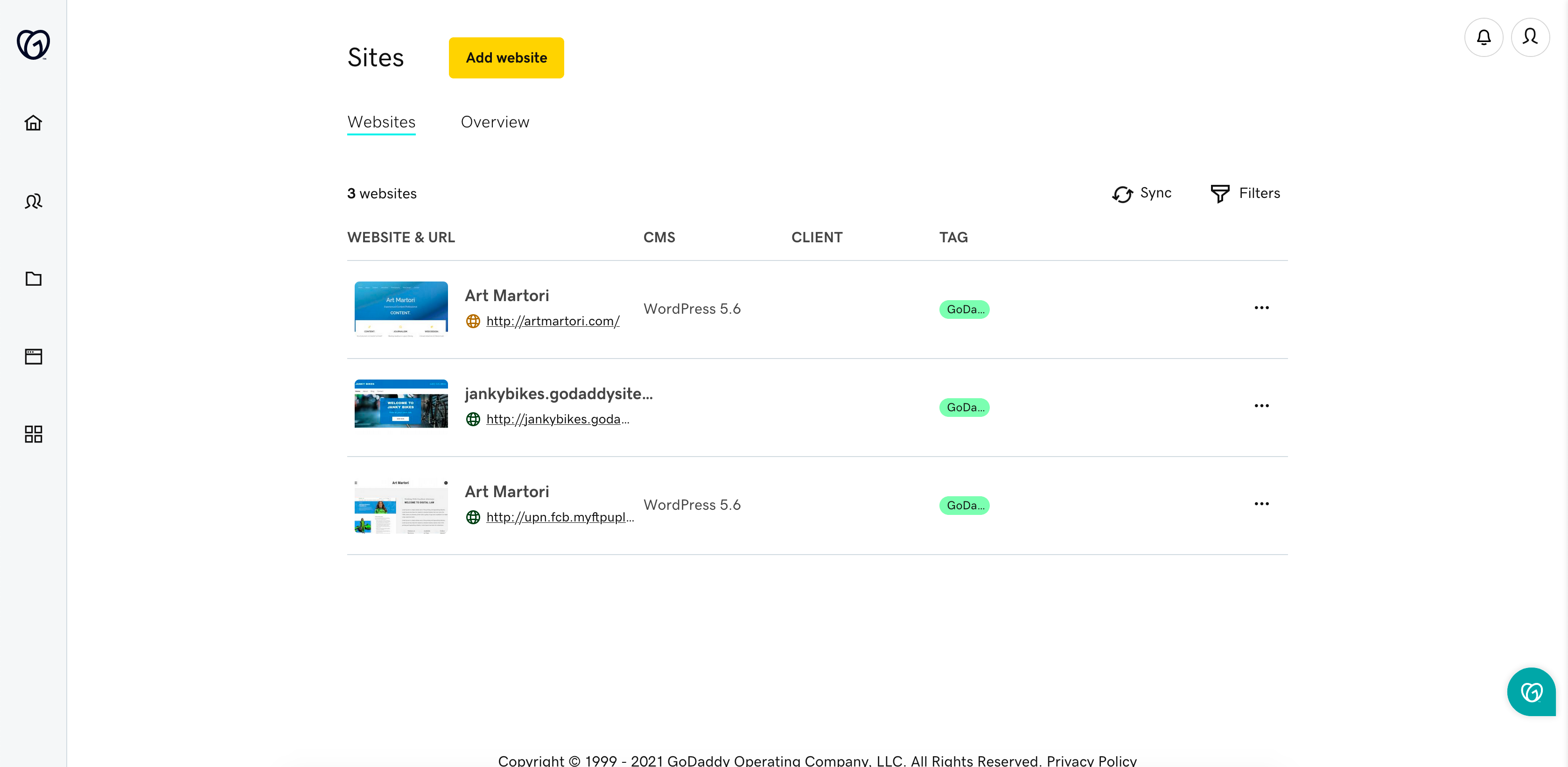
Both GoDaddy and Namecheap offer free migration tools, making it easy to transfer your website. GoDaddy provides a free WordPress migration tool that streamlines the process. Namecheap also facilitates free migrations using the All-in-One WP Migration plugin, which works with multiple hosts including GoDaddy. These automated tools reduce the complexity and potential errors associated with manual migration, benefiting users looking to switch hosting providers without incurring additional costs.
GoDaddy’s help center provides 24/7 support via phone, chat, and SMS. They have a comprehensive FAQ section, a range of help articles, and resources like the GoDaddy Guide for assistance. Conversely, Namecheap offers 24/7 live chat and a help desk, along with an extensive Knowledgebase. They also have a secure support ticket system for resolving issues. Both platforms provide valuable resources, but Namecheap’s live chat and help desk support offer quick, accessible solutions for users.
User management
accessibility.
Score Components:
- Role customization (40%): Flexibility in creating and defining user roles and
permissions. - Ease of management (30%): User interface and tools for managing users.
- Access control (20%): Effectiveness of access control measures for different user
levels. - Scalability (10%): Ability to manage a growing number of users efficiently.
 5.0
5.0
 0.0
0.0
🏆 Winner GoDaddy: A user-friendly platform with advanced capabilities for managing and defining user roles.
GoDaddy provides a more flexible system for defining and managing user roles and permissions compared to Namecheap. With GoDaddy, administrators can create and assign custom roles tailored to specific needs, allowing for granular control over what users can access and modify. Although detailed information about Namecheap’s user management capabilities is not provided, the lack of data implies that it lags significantly behind GoDaddy in this aspect. In essence, GoDaddy’s robust framework for managing users offers a well-rounded solution for businesses needing comprehensive control over user access and permissions.
GoDaddy’s user interface for managing users is straightforward, featuring easy-to-navigate dashboards and intuitive tools. Users can effortlessly assign roles, adjust permissions, and manage access settings through a visually guided process. Conversely, the details about Namecheap’s interface and tools for user management are not available, which suggests an absence or underdevelopment in these areas. The ease of use and comprehensive tools offered by GoDaddy make it a desirable choice for those looking to streamline user management efficiently.
Managing access control and handling an increasing number of users is effectively addressed by GoDaddy’s system. Administrators using GoDaddy can easily scale user roles and permissions as the size of the user base grows, ensuring smooth operations even as demands increase. The platform offers sophisticated options for access control, ensuring that sensitive information is protected and only accessible to authorized users. Without any data on Namecheap’s capabilities, GoDaddy stands out as the more reliable option for managing access control and scaling with user growth.
GoDaddy User Roles Table
| Role | Description | Access highlights |
|---|---|---|
| Administrator | Full control over all aspects of the hosting account. | Can manage user roles, permissions, and site settings. |
| Editor | Manages content creation and updates. | Can publish, edit, and delete posts and pages. |
| Contributor | Submits content for review. | Can write and manage their own posts but cannot publish. |
| Subscriber | Regular site visitor with special access. | Can read content and post comments. |
| Shop Manager | Manages e-commerce operations. | Can view and manage orders and reports. |
Customer support
hosting provider.
Score Components:
- Support communication channels (30%): Measures the variety of customer support types
provided (live chat, chatbot, email, phone, etc.) - Availability (20%): Assesses the availability hours for each channel, including 24/7
support options. - Technical support quality (30%): Assesses whether the provider offers comprehensive
technical support, including hardware upgrades (e.g., HDD to SSD), software installations, and web
server configuration changes. - Enterprise support (20%): Checks if there are dedicated or priority support services
for enterprise-level customers.
 8.2
8.2
 8.0
8.0
🏆 Winner
GoDaddy: Offers a wide range of customer support options which include phone support and extensive knowledgebase resources.
 |
 |
|
|---|---|---|
Phone support |
||
Live chat support |
||
Chatbot |
||
Email/ticket support |
||
Enterprise support (dedicated agent, priority support) |
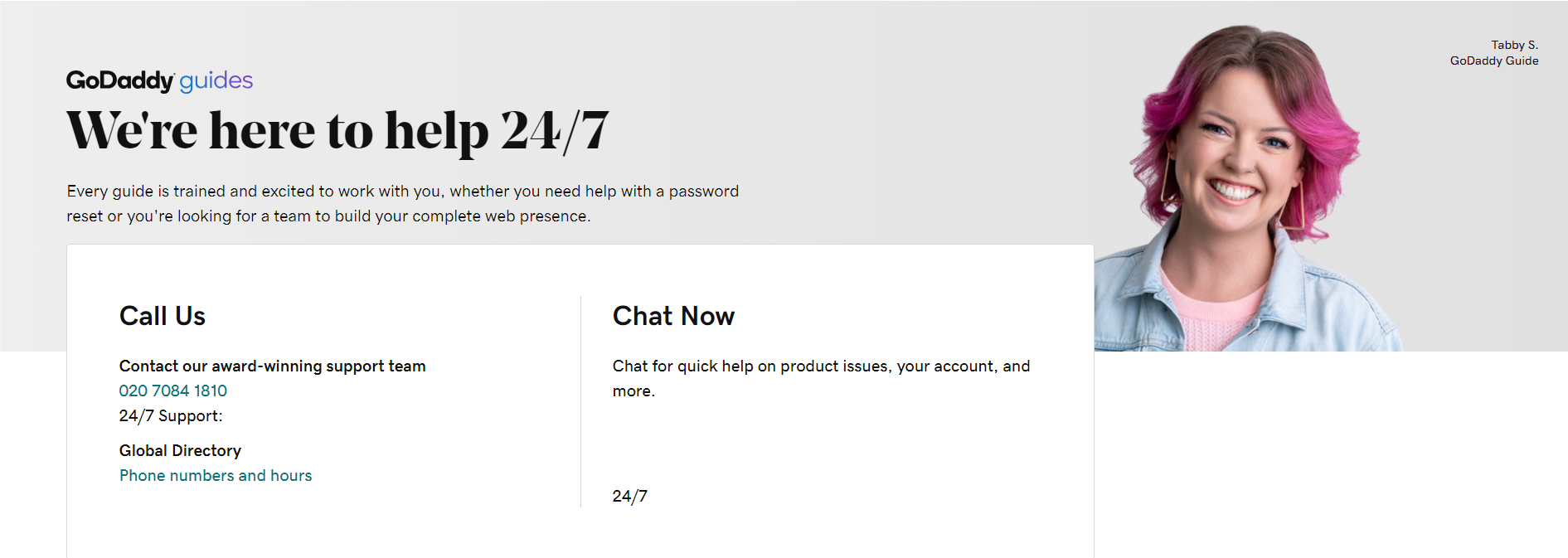
GoDaddy and Namecheap provide a variety of customer support channels, but GoDaddy stands out with its multiple phone support lines and comprehensive knowledgebase. GoDaddy’s support includes 24/7 phone, email, live chat (specific to the U.S. subdomain), SMS support, and a WordPress migration tool. They also offer automatic daily backups and global data centers for better performance and a 30-day money-back guarantee, which adds value to their customer service.
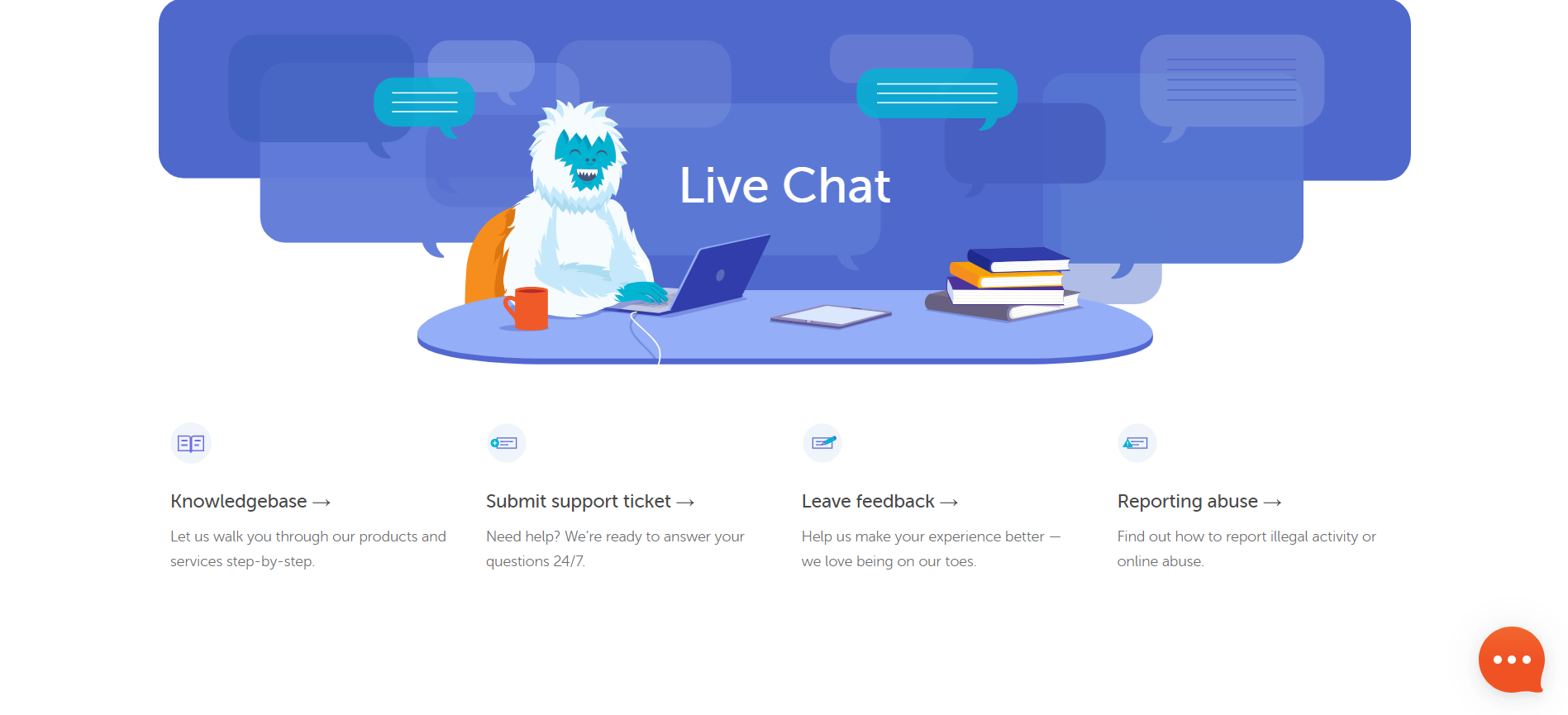
Namecheap offers 24/7 live chat and a ticketing system, but lacks phone support. Their help center includes an extensive knowledge base, guru guides, blog, and how-to videos. Namecheap also guarantees full cPanel migration within 24 hours and offers an account credit if this standard is not met. Despite this, some users have reported being directed to the ticketing system by live chat agents. Award-winning service and substantial resources for troubleshooting underscore their commitment to customer satisfaction.
User feedback
GoDaddy generally receives praise for its ease of use, affordability, comprehensive service offerings, and user-friendly interface, making it a popular choice for domain registration and basic web hosting. Many users appreciate the ability to purchase domains, web hosting, email services, and other digital products all in one place, along with frequent discounts for new customers. However, customer service experiences are inconsistent; while some users find it helpful and responsive, others report long wait times and unknowledgeable support staff. Additionally, recurring issues include high renewal costs, persistent upselling, and occasional technical difficulties.
Namecheap is widely appreciated for its affordability, reliability, and high-quality customer support. Users commend the availability of free SSL certificates, user-friendly cPanel, and outstanding hosting speed. However, shared hosting speed and the occasional slow response from support are noted concerns. Despite these minor drawbacks, Namecheap remains a popular choice for beginners and small to medium businesses due to its competitive pricing and satisfactory service quality.
FAQ
Which hosting service offers better security features?
GoDaddy offers robust security features such as AutoSSL, CloudLinux, and CageFS for balanced resource distribution and file security. Namecheap provides technical security measures like Free SSL, PremiumDNS, and FastVPN. Both providers offer DDoS protection and malware scanning, but GoDaddy includes additional features such as CloudLinux and Cage FS, giving it an edge in comprehensive security offerings.
Which platform offers better customer support?
GoDaddy and Namecheap provide a variety of customer support channels, but GoDaddy stands out with its multiple phone support lines along with 24/7 chat and email support. Namecheap offers 24/7 live chat and a ticketing system but lacks phone support. While GoDaddy offers more ways to get in touch, Namecheap is praised for its quality service and customer satisfaction.
Which platform is better suited for hosting WordPress websites?
Both GoDaddy and Namecheap are well-suited for hosting WordPress websites. GoDaddy offers managed WordPress hosting with features like daily backups and automated malware scans, while Namecheap provides faster performance with SSD storage and a fully loaded time of 0.7 seconds. The choice between them would depend on specific needs such as performance and budget.
What are the major differences in pricing and value between godaddy and namecheap?
GoDaddy’s plans tend to be more expensive in the long term, with features like free SSL and a free domain for the first year. Namecheap offers more budget-friendly options, including automatic SSL installation and free website migration. While both provide value-added features like free email and backups, Namecheap is generally seen as offering better value for budget-conscious users.
Which service is more suitable for hosting a high-traffic website?
GoDaddy is more suitable for hosting high-traffic websites due to its comprehensive VPS hosting solutions, global data centers, and superior support. It offers features like full root access and regular snapshots to ensure enhanced reliability. Namecheap is also a viable option but may lack the advanced feature sets and scalability that GoDaddy provides for handling high traffic.
The making of this blog
We followed a clear, step-by-step process to write and research this article.









